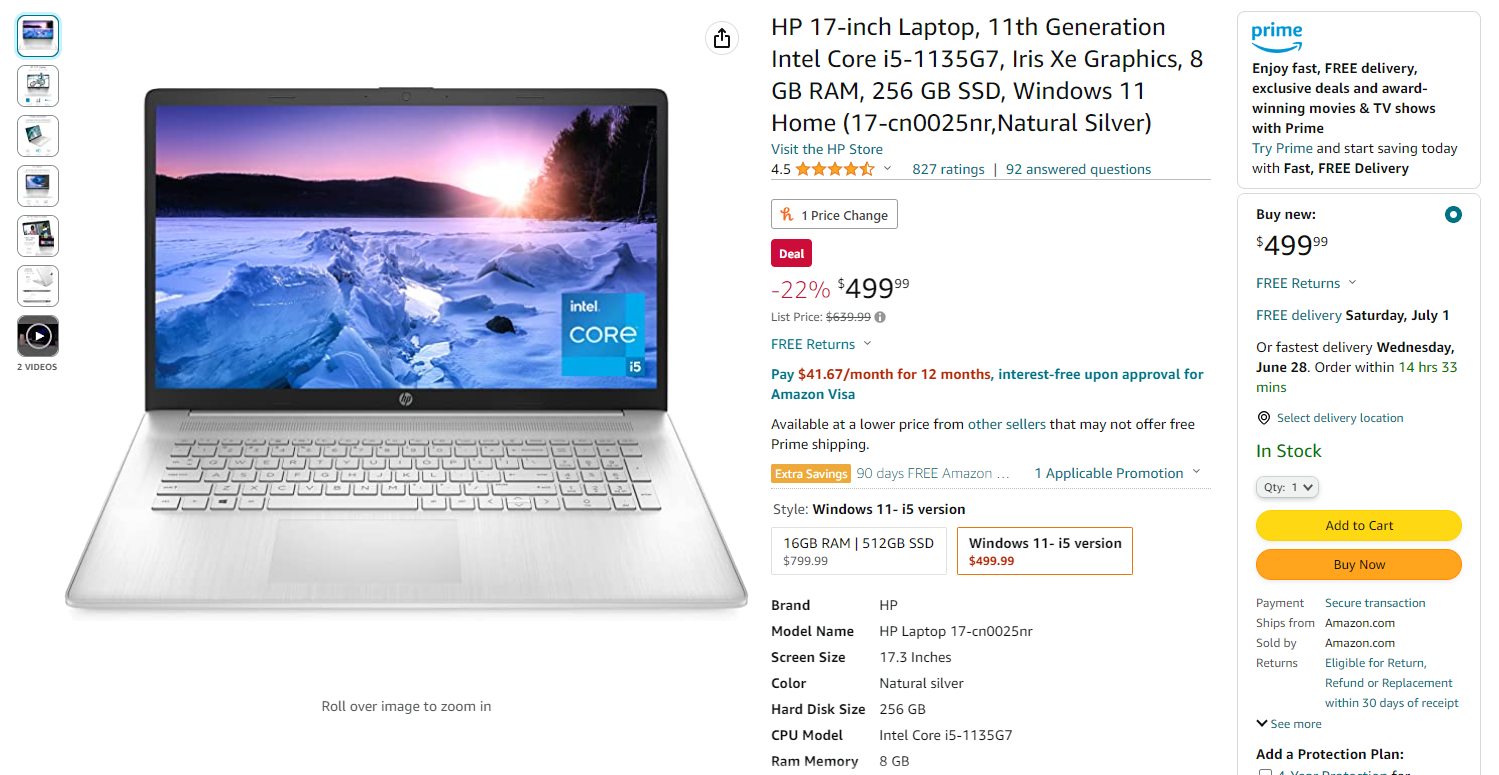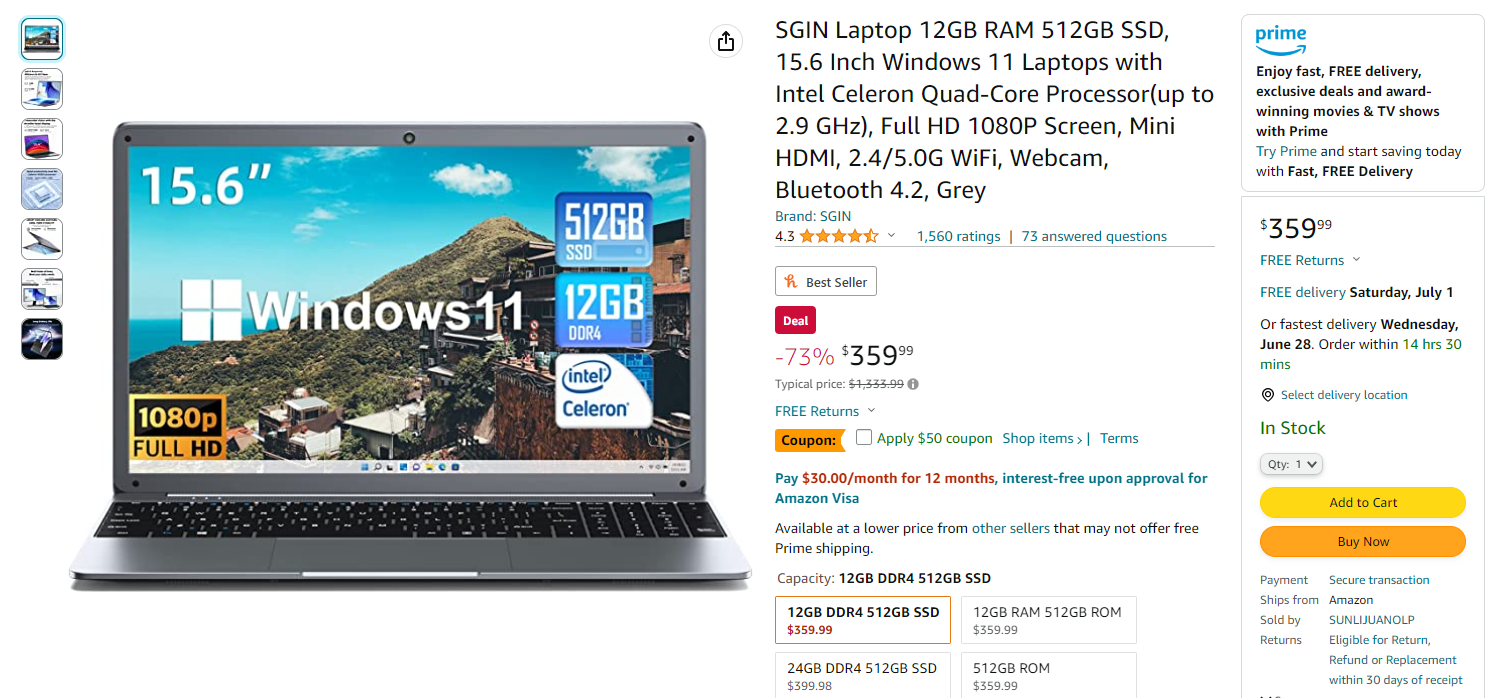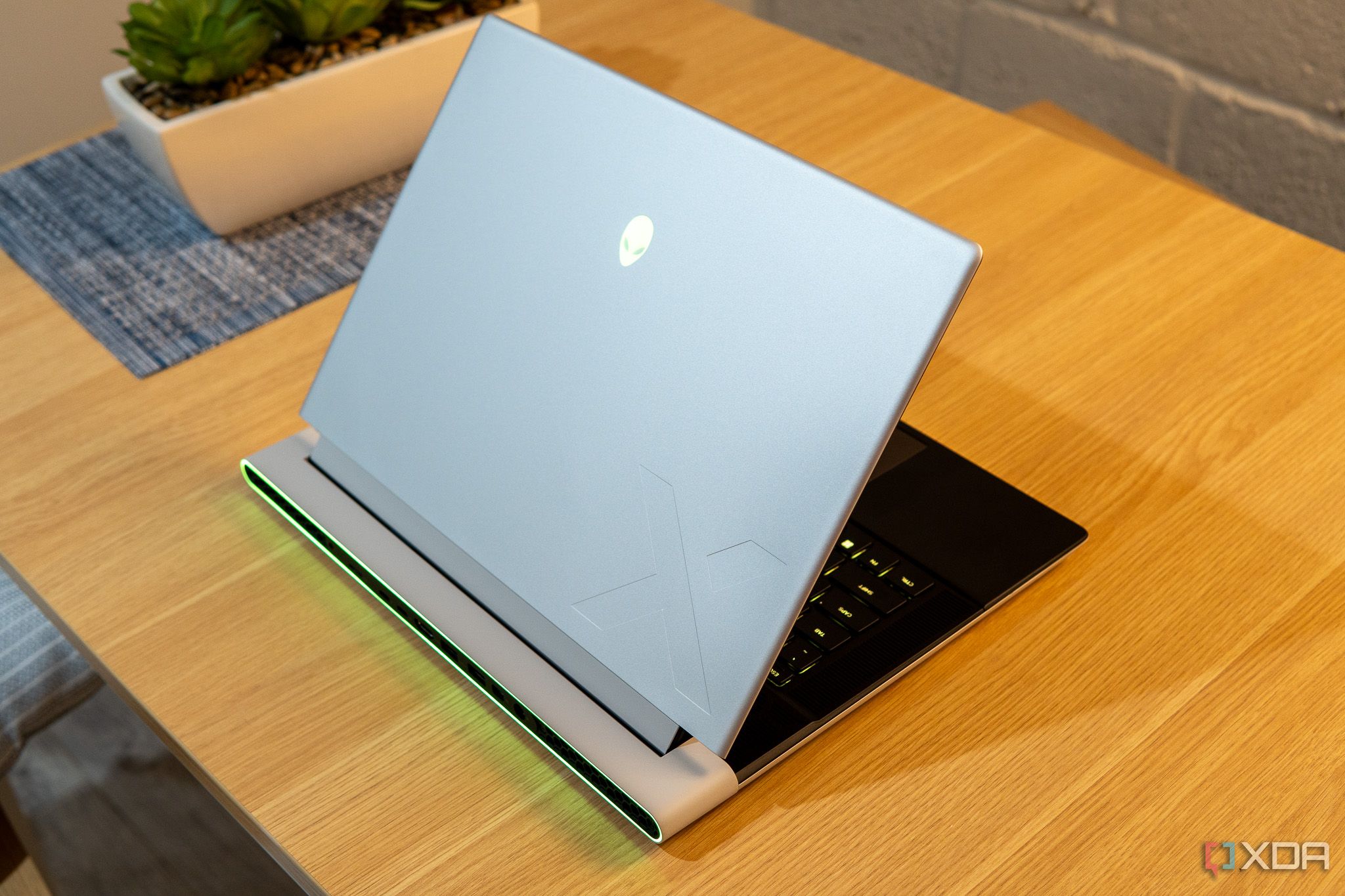Amazon Prime Day is just around the corner from July 11-12, along with competing events from other retailers. It’s a time of great deals and sales, but it’s also a time when, more than ever, you find yourself tempted to upgrade your existing laptop. But not every deal is a good deal.
We’ve already highlighted some great pre-Prime Day laptop deals, but chances are you’ll find more if you’re scrolling through Amazon to find your next device. However, seeing a huge discount does not mean that you should buy the product in question. Often, especially on Amazon, you’ll find deals on computers with very old, slow, or unsupported hardware or hardware, or devices from brands you’ve never heard of. There are a lot of things that you should watch out for and avoid.
Don’t fall for the old specs
An 11th generation Intel processor is the minimum you should be looking for
As mentioned above, a lot of the laptops you’ll find on sale during Prime Day will have very outdated specs, especially on Amazon itself. There are a lot of third party sellers on Amazon who like to tag old computers as new and even go so far as to label the laptop with words like “newer” or “newer” when the laptop is actually from years ago and not so fast at Primarily. Often the biggest discounts at other retailers are on older devices, and it may not be worth it.
If you’re shopping for a new laptop, the oldest processor we recommend is an 11th generation Intel processor (the latest available is the 13th generation) or an AMD Ryzen 5000 series processor (the newest option is a Ryzen 7000 series). Look for these numbers in the processor’s name to make sure you’re buying the right product. There may also be some Celeron or Pentium models out there that could be worth it if you’re shopping for a really cheap Chromebook, but we recommend avoiding them with Windows laptops.
For gaming laptops, we also recommend getting a laptop with at least an Nvidia GeForce RTX 30 mobile GPU or an AMD Radeon RX 6000 series, which was from last year. If you see an Nvidia GeForce RTX 2050 or GTX 1650, or something like an AMD Radeon RX 5500M, it’s too old to be worthwhile by today’s standards.
There are a lot of third party sellers on Amazon who like to pass off old computers as new.
We also don’t recommend buying any Windows laptop with less than 8GB of RAM, even if it’s heavily discounted. Windows 11 itself requires 4GB, so you’ll have a pretty mediocre experience if you only have that much. 8GB is basically the minimum nowadays. For a cheap Chromebook, 4GB might still be enough since ChromeOS is much lighter than Windows, but even then we recommend upgrading to 8GB. For storage, we recommend finding a laptop with an SSD (usually 128GB or higher) if you’re shopping for a Windows laptop, or at least 64GB of eMMC storage for your Chromebook.
We’ve only addressed Windows laptops and Chromebooks so far, mostly because MacBooks are so high-end that as long as you’re buying something recent, you’ll be fine. You should avoid any MacBook or Mac desktop that still has an Intel processor at this point. We recommend trying to stick to devices with M2 series processors, but if you find a deep discount on the M1 model, it might still be worth it, depending on how big the discount is.
Buy from trusted brands
Avoid unknown brands and sellers like this
You’ll also see plenty of laptops from brands you’ve probably never heard of, especially on Amazon. This likely means that the brand is not reputable or trusted, and you should stay away from these deals no matter how cheap they are. Buying from an unreliable brand means you’re more prone to failures (on top of poor performance), and you’ll have a hard time trying to return or repair your laptop if you need to. There are a lot of brands you can trust – Apple, Microsoft, HP, Lenovo, Dell, Acer, Asus, MSI, Razer, etc. If anything seems too exotic, research the brand to make sure you can expect a quality product and customer experience.
In cases like Amazon or Newegg, it’s also important to buy from a reputable seller. Ideally, you’ll want to buy products that are sold by, or at least, shipped by Amazon or Newegg itself. This gives you a safety net for returns and complaints as you will have an easier time communicating with these companies than you might have with third party sellers altogether. Of course, there are third-party sellers on Amazon and Newegg that can be relied upon, and they may be stores or manufacturers that use these platforms to increase their reach. Both Amazon and Newegg allow you to see each seller’s reputation, so you can be sure you’re buying from trustworthy companies.
Make sure it’s a good deal
Retailers and sellers tend to increase prices in the run-up to a sales event to make the discounts appear to be much larger than they normally would be. They may also incorrectly claim that the regular price is actually a discounted price. It’s a good idea to use websites like CamelCamel or an extension like Keepa or Honey to make sure the ongoing rate is an actual bargain.
It is also important to weigh the actual price and discount against the quality of the product. You’ll see bigger discounts on laptops with older processors, but that doesn’t always mean you have to go for it. Apart from laptops that are too old to never buy, you should also keep in mind that a laptop with a 12th generation Intel CPU may have a greater discount than a 13th generation model, but this one is a 13th generation It will have better performance and will likely be supported for a longer period. You have to decide if this difference in price is significant enough to justify the purchase of an older model.
Make sure you need it
One final financial tip is to avoid buying things you don’t need. Just because there’s a huge discount on something doesn’t mean you have to get it. If you buy something that normally costs $3,000 for $2,000, but you don’t need it, you’re not saving $1,000; You only spend $2,000.
If you already have a laptop with a 12th Gen Intel or AMD Ryzen 6000 processor, or if you have a gaming laptop with an Nvidia GeForce RTX 30 GPU, you probably don’t need to upgrade yet. Wait a few years to find a good deal for the upgrade that actually matters to you.
Plus, if you’re buying a laptop for office work, you don’t need to buy an ultra-expensive gaming laptop just because it’s on sale. Gaming laptops pack a lot of powerful specs that you’ll never need if you’re just reading and writing emails, drafting documents, or giving presentations. You can get a laptop of the same quality for a lot less money. On the other hand, a business laptop probably won’t do you any good for gaming or heavy video editing, so you shouldn’t spend money on a weaker laptop just because it’s cheap.
Find the best deals
Whether you’re buying a laptop for work, gaming, work, or school, this tip should help ensure you make a good purchase. As we mentioned at the top, we’ve put together a few deals ourselves that adhere to the guidelines we listed here, so you can check them out if you want to find something good. We also have a list of deals on monitors, SSDs, and other computer peripherals.
[ad_2]







